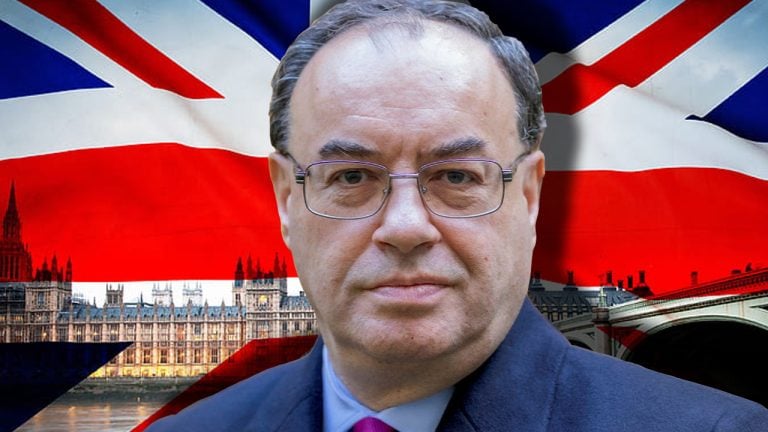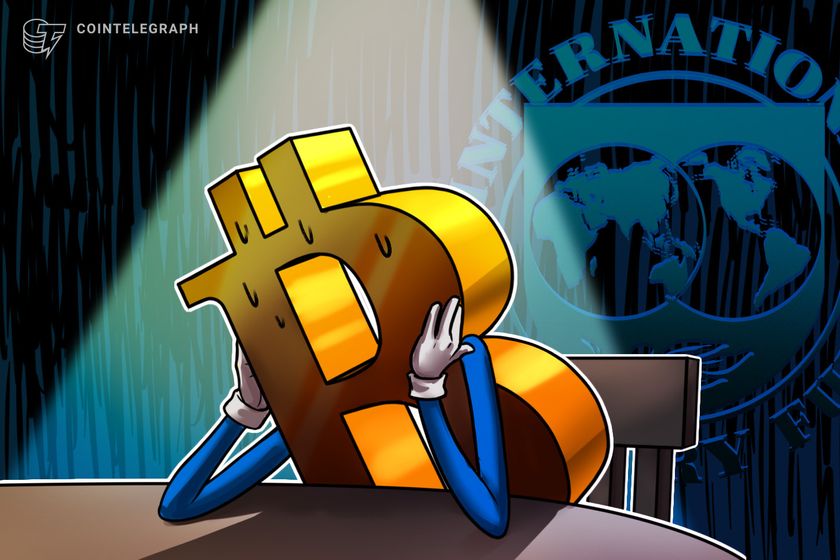
Bank of England Hikes Repo Rate by 75bps — UK’s 30-Year Fixed Mortgage Rate Jumps to 7%

On Nov. 3, 2022, the Bank of England followed the U.S. Federal Reserve by codifying the eighth consecutive benchmark bank rate hike by 75 basis points (bps). The increase brings the United Kingdom’s main lending rate to 3%, after a majority of the Monetary Policy Committee (MPC) members voted in favor of the 75bps increase.
Bank of England Hikes Repo Rate by 75bps, Monetary Policy Committee Insists More Rate Increases Will Be Needed to Obtain 2% Inflation Rate Goal
Seven out of nine MPC members voted in favor of a 75bps rate hike, while two MPC members voted for lower increases. According to the MPC, one member wanted a 50bps hike, while another voted for a 25bps increase. The Bank of England’s rate hike on Thursday was the largest jump in 33 years or since 1989, and the MPC expects more rate increases will be required to tame inflation.
“The majority of the Committee judges that, should the economy evolve broadly in line with the latest Monetary Policy Report projections, further increases in Bank Rate may be required for a sustainable return of inflation to target, albeit to a peak lower than priced into financial markets,” the MPC explained on Thursday.
The news follows the Fed’s rate hike the day prior, when the U.S. central bank raised the rate by 75bps on Wednesday. At first, global markets took the Fed’s announcement as positive news, but Fed chair Jerome Powell’s commentary with the press that followed soon after, changed the mood. Powell remarked that the Fed anticipates “that ongoing increases will be appropriate” and he further stressed that “it is very premature, in my view, to think about or be talking about pausing our rate hikes.”
Members of the Bank of England, the MPC, and economists think that the growth projections for the United Kingdom look dismal. The MPC noted on Thursday that things currently look “very challenging” for the U.K.’s economy. Similar to the U.S. central bank’s goals, the Bank of England is attempting to bring inflation down back to the 2% target. The U.K. and London-listed gilts (bonds) saw some gains after the announcement, while the British pound sterling slid 1.84% against the U.S. dollar.
“For the current November forecast, and consistent with the Government’s announcements on 17 October, the MPC’s working assumption is that some fiscal support continues beyond the current six-month period of the Energy Price Guarantee (EPG), generating a stylised path for household energy prices over the next two years,” the MPC explained in the committee’s announcement.
MPC Members Are Uncertain if Energy Price Guarantee Will ‘Augment Inflationary Pressures,’ 30-Year Fixed Mortgage Rate in the U.K. Is Coasting Along at 7%
Recent data shows the U.K.’s inflation rate reached a high at 10.1% in September, while the European Union’s (EU) inflation rate tapped 9.9%. Furthermore, similar to the EU’s lending rates, the U.K.’s mortgage rates have climbed significantly. A 15-year mortgage in the U.K. is 6.154%, while a 30-year mortgage rate is 7%. The Bank of England’s repo rate and the London Interbank Offered Rate (LIBOR) are the main influencing rates that affect lending vehicles across the U.K.
The MPC believes the EPG could curb or augment inflationary pressures tied to the energy sector. “Such support would mechanically limit further increases in the energy component of CPI inflation significantly, and reduce its volatility,” the MPC concluded on Thursday. “However, in boosting aggregate private demand relative to the August projections, the support could augment inflationary pressures in non-energy goods and services.”
In addition to the MPC’s commentary, Bank of England governor Andrew Bailey told the press the central bank can’t make promises when it comes to future rate hikes. “We can’t make promises about future interest rates, but based on where we stand today we think Bank Rate will have to go up by less than currently priced in financial markets,” Bailey told the press after the 75bps rate hike. In terms of fighting inflation, Bailey added:
If we do not act forcefully now it will be worse later on.
What do you think about the U.K.’s Monetary Policy Committee and the Bank of England choosing to raise the benchmark bank rate by 75bps? Let us know what you think about this subject in the comments section below.
Go to Source
Author: Jamie Redman









